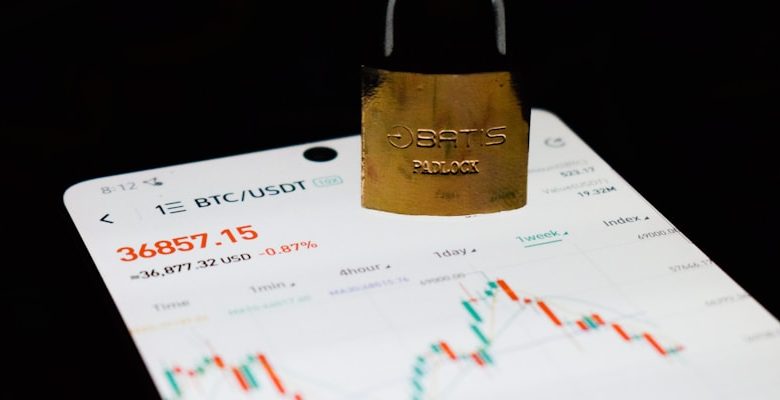How Regulation Can Foster Trust in the Cryptocurrency Market

- Understanding the importance of regulation in the cryptocurrency market
- Building a framework of trust through regulatory measures
- The role of government oversight in ensuring investor confidence
- Challenges and benefits of implementing regulations in the crypto industry
- Exploring the impact of regulatory compliance on market stability
- Future prospects for a regulated and trustworthy cryptocurrency market
Understanding the importance of regulation in the cryptocurrency market
Regulation plays a crucial role in shaping the cryptocurrency market and fostering trust among investors and users. It provides a framework for accountability, transparency, and protection against fraud and scams. Without proper regulation, the market is more susceptible to manipulation and illegal activities, which can undermine its credibility and deter mainstream adoption.
By implementing regulations, governments and regulatory bodies can help legitimize the cryptocurrency market and make it more attractive to traditional investors and institutional players. This can lead to increased liquidity, stability, and overall growth in the market. Additionally, regulation can help address concerns around consumer protection, money laundering, and terrorist financing, making it a safer environment for all participants.
Furthermore, regulation can also help weed out bad actors and promote responsible behavior within the industry. By setting standards and enforcing compliance, regulators can ensure that cryptocurrency projects and exchanges operate in a fair and ethical manner. This can help build trust among users and investors, ultimately enhancing the reputation of the market as a whole.
Building a framework of trust through regulatory measures
Regulatory measures play a crucial role in building a framework of trust in the cryptocurrency market. By implementing rules and guidelines, regulators can help protect investors and ensure transparency within the industry. This, in turn, can foster trust among participants in the market.
One way in which regulations can contribute to trust is by providing a sense of security for investors. When there are clear rules in place, investors are more likely to feel confident in the market and willing to engage in transactions. This can lead to increased participation and liquidity, ultimately benefiting the overall health of the market.
Additionally, regulatory measures can help weed out bad actors and prevent fraudulent activities. By imposing strict guidelines on market participants, regulators can create a level playing field where everyone is held accountable for their actions. This can help reduce the risk of scams and Ponzi schemes, which are often associated with the cryptocurrency market.
Furthermore, regulations can also help improve market integrity by promoting fair and orderly trading practices. When all participants are required to adhere to the same set of rules, it can help prevent manipulation and market abuse. This can result in a more stable and trustworthy market environment for all stakeholders involved.
In conclusion, building a framework of trust through regulatory measures is essential for the long-term success of the cryptocurrency market. By implementing clear rules and guidelines, regulators can help protect investors, prevent fraudulent activities, and promote fair trading practices. This can ultimately lead to increased trust and confidence in the market, which is crucial for its growth and sustainability.
The role of government oversight in ensuring investor confidence
Government oversight plays a crucial role in ensuring investor confidence in the cryptocurrency market. By implementing and enforcing regulations, the government can help protect investors from fraud, manipulation, and other illegal activities. This oversight also helps to create a level playing field for all participants in the market, fostering trust and transparency.
Regulations set by the government can help establish standards for cryptocurrency exchanges, requiring them to adhere to certain security measures and reporting requirements. This can help reduce the risk of hacks and theft, providing investors with a safer environment to trade digital assets. Additionally, government oversight can help prevent market manipulation and insider trading, further bolstering investor confidence.
Furthermore, government oversight can help address concerns related to money laundering and terrorist financing in the cryptocurrency market. By implementing Know Your Customer (KYC) and Anti-Money Laundering (AML) regulations, authorities can ensure that exchanges and other crypto businesses are taking steps to verify the identities of their customers and report suspicious activities. This can help protect investors and the integrity of the market.
In conclusion, government oversight is essential in ensuring investor confidence in the cryptocurrency market. By setting and enforcing regulations, authorities can help protect investors, prevent illegal activities, and promote trust and transparency. This oversight is crucial for the long-term growth and stability of the crypto market, attracting more investors and fostering a healthy ecosystem for digital assets.
Challenges and benefits of implementing regulations in the crypto industry
One of the main challenges of implementing regulations in the cryptocurrency industry is the decentralized nature of the market. Cryptocurrencies operate on a peer-to-peer network, making it difficult for traditional regulatory bodies to monitor and control. This lack of oversight can lead to increased risks for investors, such as fraud and market manipulation. However, by introducing regulations, the industry can become more transparent and secure, which can ultimately lead to greater trust from investors and the general public.
On the other hand, implementing regulations in the crypto industry can also bring about several benefits. Regulations can help protect investors from scams and fraudulent activities, as well as ensure that exchanges and other platforms comply with anti-money laundering and know-your-customer requirements. This can help to weed out bad actors from the market and create a safer environment for all participants. Additionally, regulations can also help to legitimize the industry in the eyes of governments and financial institutions, which can lead to greater adoption and integration of cryptocurrencies into the mainstream financial system.
Overall, while there are challenges to implementing regulations in the cryptocurrency industry, the benefits far outweigh the drawbacks. By introducing regulations, the industry can become more transparent, secure, and trustworthy, which can foster greater trust from investors and the general public. Additionally, regulations can help to protect investors from scams and fraudulent activities, as well as legitimize the industry in the eyes of governments and financial institutions. Ultimately, regulations can help to ensure the long-term viability and success of the cryptocurrency market.
Exploring the impact of regulatory compliance on market stability
One crucial aspect to consider when assessing the impact of regulatory compliance on market stability is how regulations can help build trust in the cryptocurrency market. By establishing clear guidelines and rules for market participants to follow, regulatory authorities can create a more transparent and secure environment for investors and traders alike.
Regulatory compliance can also help weed out bad actors and prevent fraudulent activities, ultimately fostering a more trustworthy market ecosystem. When market participants know that there are consequences for non-compliance with regulations, they are more likely to act in a responsible manner, which can contribute to market stability in the long run.
Moreover, regulatory compliance can provide a level playing field for all market participants, ensuring that no single entity can manipulate the market to their advantage. This can help prevent market crashes and other destabilizing events that can erode trust in the cryptocurrency market.
Overall, exploring the impact of regulatory compliance on market stability is essential for understanding how regulations can foster trust in the cryptocurrency market. By promoting transparency, security, and fairness, regulatory authorities can play a crucial role in building a more stable and trustworthy market environment for all participants.
Future prospects for a regulated and trustworthy cryptocurrency market
In the future, a well-regulated and transparent cryptocurrency market holds great promise for investors and consumers alike. By implementing robust regulations and oversight, the market can instill trust and confidence among participants. This will help to weed out bad actors and illicit activities, ensuring a safer environment for all involved.
One of the key advantages of a regulated cryptocurrency market is the protection it offers to investors. With clear rules and standards in place, individuals can feel more secure in their investments, knowing that they are operating within a framework that prioritizes their interests. This can help to attract more mainstream investors who may have been hesitant to enter the market due to its perceived risks.
Moreover, a regulated market can also help to foster innovation within the cryptocurrency space. By providing a level playing field for all participants, regulations can encourage the development of new technologies and applications that have the potential to revolutionize the industry. This can lead to greater adoption of cryptocurrencies and blockchain technology, further legitimizing their place in the financial ecosystem.
Overall, the future prospects for a regulated and trustworthy cryptocurrency market are bright. By working together to establish clear guidelines and standards, the industry can pave the way for a more sustainable and secure future. Investors and consumers can rest assured that their interests are being protected, while innovators can continue to push the boundaries of what is possible in this exciting and dynamic space.



